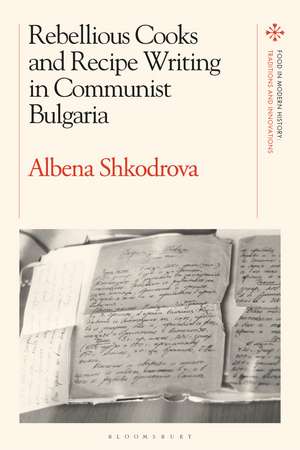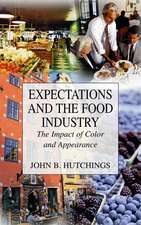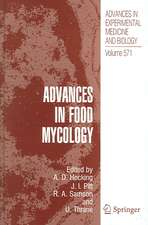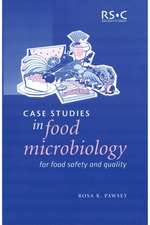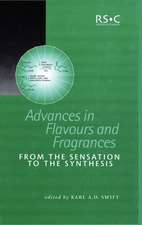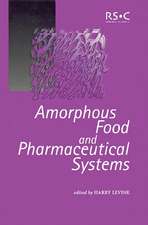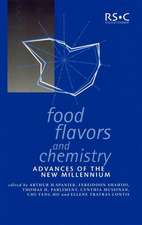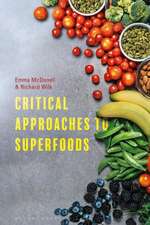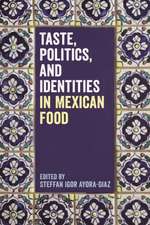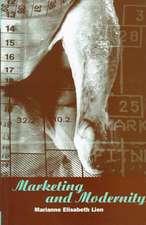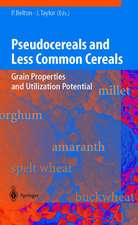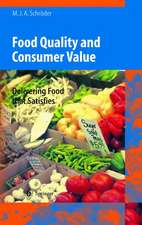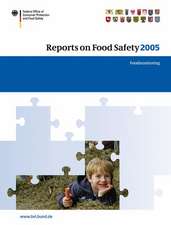Rebellious Cooks and Recipe Writing in Communist Bulgaria: Food in Modern History: Traditions and Innovations
Autor Dr Albena Shkodrovaen Limba Engleză Hardback – 10 feb 2021
| Toate formatele și edițiile | Preț | Express |
|---|---|---|
| Paperback (1) | 196.71 lei 6-8 săpt. | |
| Bloomsbury Publishing – 24 aug 2022 | 196.71 lei 6-8 săpt. | |
| Hardback (1) | 568.06 lei 6-8 săpt. | |
| Bloomsbury Publishing – 10 feb 2021 | 568.06 lei 6-8 săpt. |
Preț: 568.06 lei
Preț vechi: 815.51 lei
-30% Nou
Puncte Express: 852
Preț estimativ în valută:
108.70€ • 113.79$ • 89.94£
108.70€ • 113.79$ • 89.94£
Carte tipărită la comandă
Livrare economică 05-19 aprilie
Preluare comenzi: 021 569.72.76
Specificații
ISBN-13: 9781350132306
ISBN-10: 1350132306
Pagini: 200
Ilustrații: 12 bw illus
Dimensiuni: 156 x 234 mm
Greutate: 0.46 kg
Editura: Bloomsbury Publishing
Colecția Bloomsbury Academic
Seria Food in Modern History: Traditions and Innovations
Locul publicării:London, United Kingdom
ISBN-10: 1350132306
Pagini: 200
Ilustrații: 12 bw illus
Dimensiuni: 156 x 234 mm
Greutate: 0.46 kg
Editura: Bloomsbury Publishing
Colecția Bloomsbury Academic
Seria Food in Modern History: Traditions and Innovations
Locul publicării:London, United Kingdom
Caracteristici
Opens up access to previously unseen archival material and presents a new way of thinking about home cooking as social resistance
Notă biografică
Albena Shkodrova is a Research Fellow at KU Leuven in Belgium.
Cuprins
Introduction: The Bulgarian Cookbooks SamizdatCh 1. Between Communist Feminism and PatriarchyCh 2. The Practical Value of a ScrapbookCh 3. The Social Powers of Recipes and CookingCh 4. "I Cooked with Pleasure"Conclusion. (To Communist Women) Cooking Made Sense
Recenzii
Shkodrova's study is well written and brings valuable insights into less explored aspects of Bulgarian cultural history. It is actually the book I enjoyed the most this year. Documenting and analyzing cookbooks, scrapbooks, and interviews provide a fresh understanding of daily life in socialist Bulgaria and offer glimpses into people's kitchen practices, desires, and failures while also shedding light on gender relations at home.
[The] book's defence of homegrown recipe collections and their importance as material evidence of Bulgaria's cultural heritage is both cogent and indisputable.
It is a valuable book of cultural history. It smells like literature and it tastes like Bulgarian socialism.
From her silence, my mother made wonderful fried zucchini, baked lamb, banitsa. Everything can be said with a few dishes. Only later did I realize why my mother and grandmother were such good cooks. It wasn't cooking, but storytelling. Scrapbooks with personal handwritten recipes are sources of these untold stories. With her inventive research, Albena Shkodrova opens for us these small private time capsules of the recent past. All handwritten recipes passing from woman to woman and generation to generation are pages of a hidden and, as it turns out, subversive history of communist Bulgaria. Without them our knowledge for that time would be tasteless and spiceless. While reading Shkodrova's book, you enter again the kitchen of that past, get invited to its table, and forget to leave.
This exploration of the "political nature of food" is about storytelling, social ties and book-making as much as cooking. Who would have imagined that "passionate recipe exchange" could be such a powerful force of resistance? Rebellious Cooks and Recipe Writing in Communist Bulgaria is a wonderfully unexpected and engaging insight into the way we struggle to stay human in the face of an oppression.
[The] book's defence of homegrown recipe collections and their importance as material evidence of Bulgaria's cultural heritage is both cogent and indisputable.
It is a valuable book of cultural history. It smells like literature and it tastes like Bulgarian socialism.
From her silence, my mother made wonderful fried zucchini, baked lamb, banitsa. Everything can be said with a few dishes. Only later did I realize why my mother and grandmother were such good cooks. It wasn't cooking, but storytelling. Scrapbooks with personal handwritten recipes are sources of these untold stories. With her inventive research, Albena Shkodrova opens for us these small private time capsules of the recent past. All handwritten recipes passing from woman to woman and generation to generation are pages of a hidden and, as it turns out, subversive history of communist Bulgaria. Without them our knowledge for that time would be tasteless and spiceless. While reading Shkodrova's book, you enter again the kitchen of that past, get invited to its table, and forget to leave.
This exploration of the "political nature of food" is about storytelling, social ties and book-making as much as cooking. Who would have imagined that "passionate recipe exchange" could be such a powerful force of resistance? Rebellious Cooks and Recipe Writing in Communist Bulgaria is a wonderfully unexpected and engaging insight into the way we struggle to stay human in the face of an oppression.
